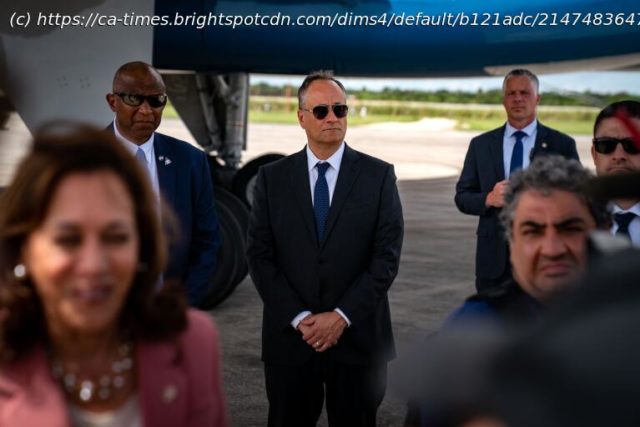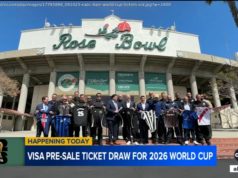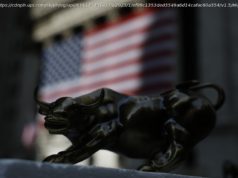The revocation of the former vice president’s Secret Service detail has turned the question of Harris’ safety into a political issue. There’s bad faith aplenty.
When Kamala Harris was contemplating a run for California governor, one of her supposed considerations was the security detail that attends the state’s chief executive.
The services of a life-preserving, ego-boosting retinue of intimidating protectors — picture dark glasses, earpiece, stern visage — were cited by more than one Harris associate, past and present, as a factor in her deliberations. These were not Trumpers or Harris haters looking to impugn or embarrass the former vice president.
According to one of those associates, Harris has been accompanied nonstop by an official driver and person with a gun since 2003, when she was elected San Francisco district attorney. One could easily grow accustomed to that level of comfort and status, not to mention the pleasure of never having to personally navigate the 101 or 405 freeways at rush hour.
That is, of course, a perfectly terrible and selfish reason to run for governor, if ever it was a part of Harris’ thinking. To her credit, the reason she chose to not run was a very good one: Harris simply “didn’t feel called” to pursue the job, in the words of one political advisor.
Now, however, the matter of Harris’ personal protection has become a topic of heated discussion and debate, which is hardly surprising in an age when everything has become politicized, including “and” and “the.”
There is plenty of bad faith to go around.
Last month, President Trump abruptly revoked Harris’ Secret Service protection. The security arrangement for vice presidents typically lasts for six months after they leave office, allowing them to quietly fade into ever greater obscurity. But before vacating the White House, President Biden signed an executive order extending protection for Harris for an additional year.






